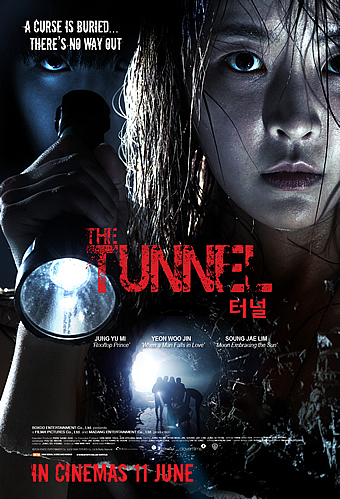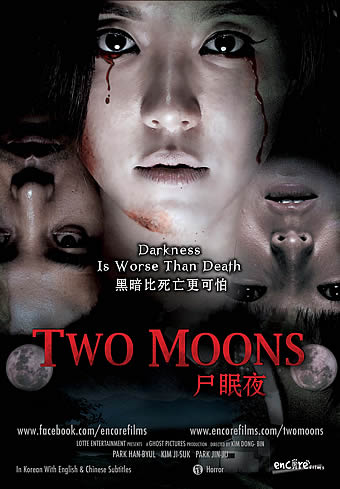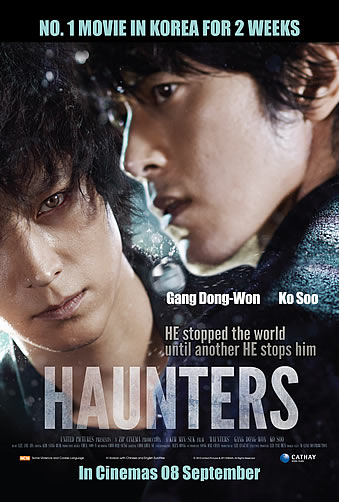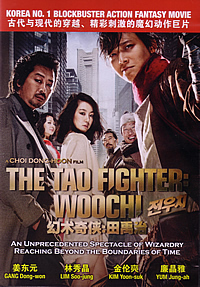THE PRIESTS (2015)
Genre: Horror/Thriller
Director: Jang Jae-hyun
Cast: Kim Yoon-seok, Gang Dong-won, Park So-dam
Runtime: 1 hr 48 mins
Rating: NC-16 (Horror)
Released By: Golden Village Pictures
Official Website:
Opening Day: 7 January 2016
Synopsis: 2015, Seoul. After getting involved in a hit-and-run accident, a girl named Young-shin suffers from various inexplicable phenomenons… Father Kim (KIM Yoon-seok) is a renegade priest who is shunned by the church for breaking rules and codes of conduct over the years. Despite everyone’s pleas, he decides to conduct one last exorcism on Young-shin and begins to make preparations. For the exorcism to be carried out successfully, Father Kim requires an assistant, someone who is witty, and bold. Deacon Choi (GANG Dong-won) is chosen for the role, who is given a secret mission by the church to monitor Father Kim and report any wrongdoings. Once the preparation is complete, they walk into Young-shin’s bedroom. Fully knowing that they may not walk out of there alive, they begin the dangerous ritual…
Movie Review:
You wouldn’t normally expect to see a full-blown exorcism in a South Korean movie, so consider us intrigued when we first heard of writer/ director Jang Jae-hyun’s ‘The Priests’. True enough, Jang’s film is the first of its kind to dabble in the ‘occult’, a genre typically associated with Western cinema for both cultural and historical reasons. Digging deep into Roman Catholic theology to deliver a largely accurate depiction of the oft-misunderstood ritual, Jang delivers a tense and frequently edge-of-your-seat gripping portrait of the eternal fight between light and darkness, a theme which he also similarly explored in his award-winning 2014 short ‘12th Assistant Deacon’.
As in that short, the key protagonists are a renegade priest Father Kim (Kim Yun-seok) and a priest-in-training Deacon Choi (Gang Dong-won), who team up to save a young girl Young-shin (Park So-dam) that begins to exhibit one of the twelve manifestations of evil tracked by the Rosicrucrianism after a hit-and-run accident. Young-shin was a member of Father Kim’s congregation when he was a priest of a church in the countryside, and it is partly their history that compels him to take matters into his own hands when the other members of his flock disapprove of his intentions to conduct an exorcism for Young-shin for fear of spooking the public.
It is hardly the first time that Kim is playing the role of the rebellious, tough-talking veteran, and he does it here with aplomb. He expresses with keenness not only the toll that Father Kim’s fight with the demon inside Young-shin has taken on him, but also the conviction of his character’s faith in the power of God over evil that gives him the strength to press on. Yet the film belongs as much to Father Kim as it does to Deacon Choi, a fresh-eyed ingénue who is plucked out of theology school to assist Father Kim while acting as spy for the larger Catholic fraternity to keep an eye on their wayward brethren - and unlike Father Kim, his motivation is less to save a life than to save himself from a life of studying in the seminary.
Needless to say, Deacon Choi soon finds himself way out of his depth as he is confronted with the very definition of evil, but there is more to Choi than just his naivety; indeed, Choi remains haunted to this day by the guilt of a traumatic childhood accident where he failed to save his sister from being bitten to death by a ferocious dog. It is this frailty that the demon will exploit to taunt and scare him in the midst of the rite of exorcism, and Gang embodies his character’s transformation from fear to temerity with wide-eyed wonder and tenacity. His character is intended as Father Kim’s complement as well as a passing-of-the-baton from veteran to rookie, and Gang shares an engaging dynamic with Kim in their scenes together.
Rather than contrive to take his audiences through a protracted story of Father Kim’s battle with the demon within Young-shin, Jang opts for a much simpler narrative that places its emphasis on authenticity. Pretty much most of the first half is set-up for an elaborate display of the ritual in the second half, which takes place over the course of one full-moon night in a dingy top-floor apartment located at the heart of the bustling Myeong-dong district. Nonetheless, the first hour remains a riveting watch, constructed with scenes to underscore the peril that Father Kim and Deacon Choi will soon find themselves in. The procedure itself in its full extended glory is also more than worth the wait, packed with moments of sheer terror as the duo attempt to draw the evil spirit to reveal its name while overcoming their own personal demons.
For being the first of its kind, Jang deserves even more credit for successfully demonstrating how to ‘localise’ a genre that has never been associated with K-cinema or K-horror for that matter. Despite being his feature filmmaking debut, Jang exhibits a strong grasp of mise-en-scene, especially with the contrast of light and dark in the film’s visuals. Jang’s choice to film his movie on location in busy neighbourhoods and districts in Seoul, Anyang and Daegu also gives it a strong sense of place, and a particularly nice touch in that regard is the depiction of a traditional Korean shamanistic ritual right before the rite of exorcism. Oh yes, ‘The Priests’ is terrifying all right, bolstered in part by its heightened sense of realism, and besides being a bold new entry into a subject matter yet unexplored in that context, it is a perfectly worthy addition to the genre in its own right.
Movie Rating:




(Gripping with moments of sheer terror, 'The Priests' is notable not just for being the first South Korean 'exorcism' film, but a perfectly worthy addition to the genre in its own right)
Review by Gabriel Chong
You might also like:
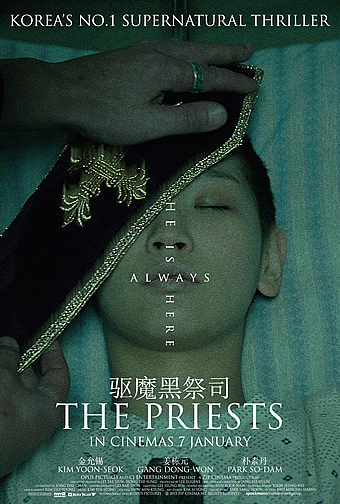
Movie Stills
.jpg)
.jpg)
.jpg)
.jpg)
.jpg)
.jpg)

